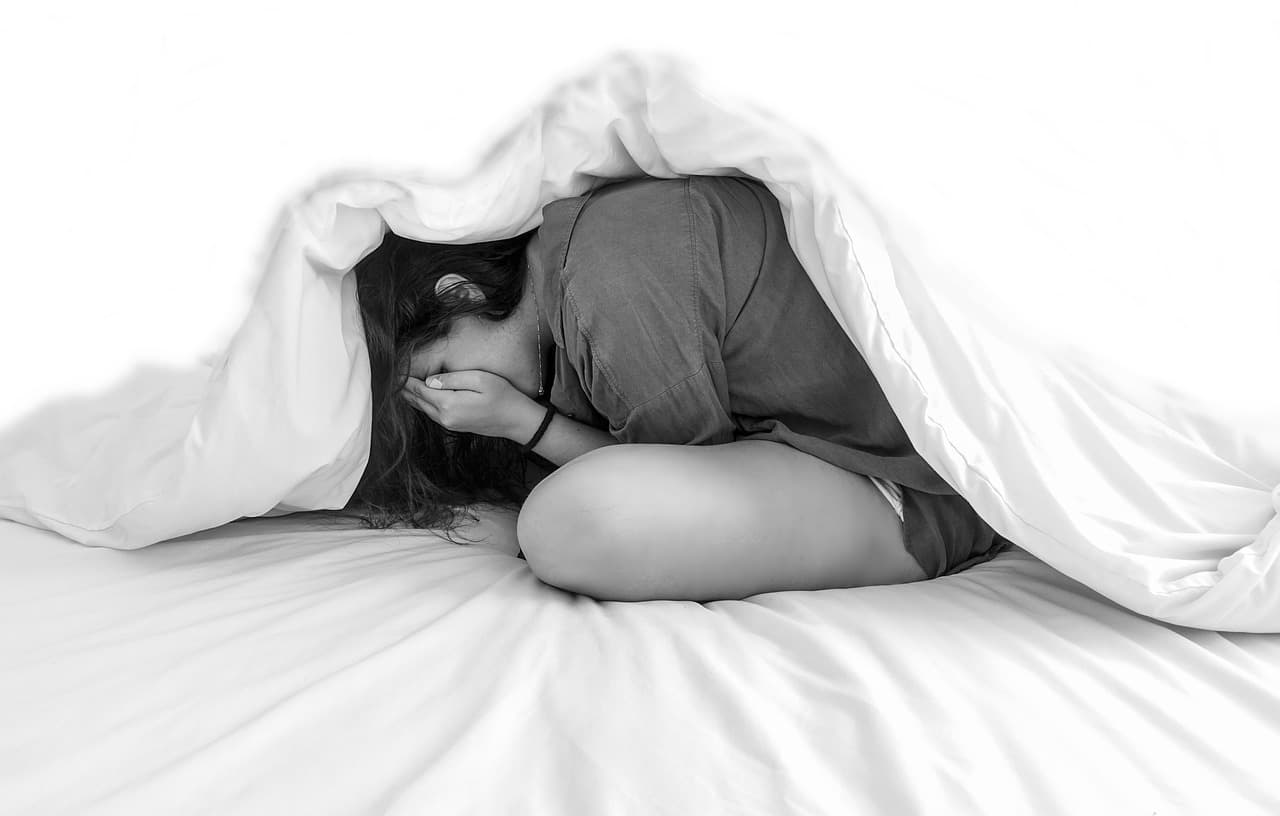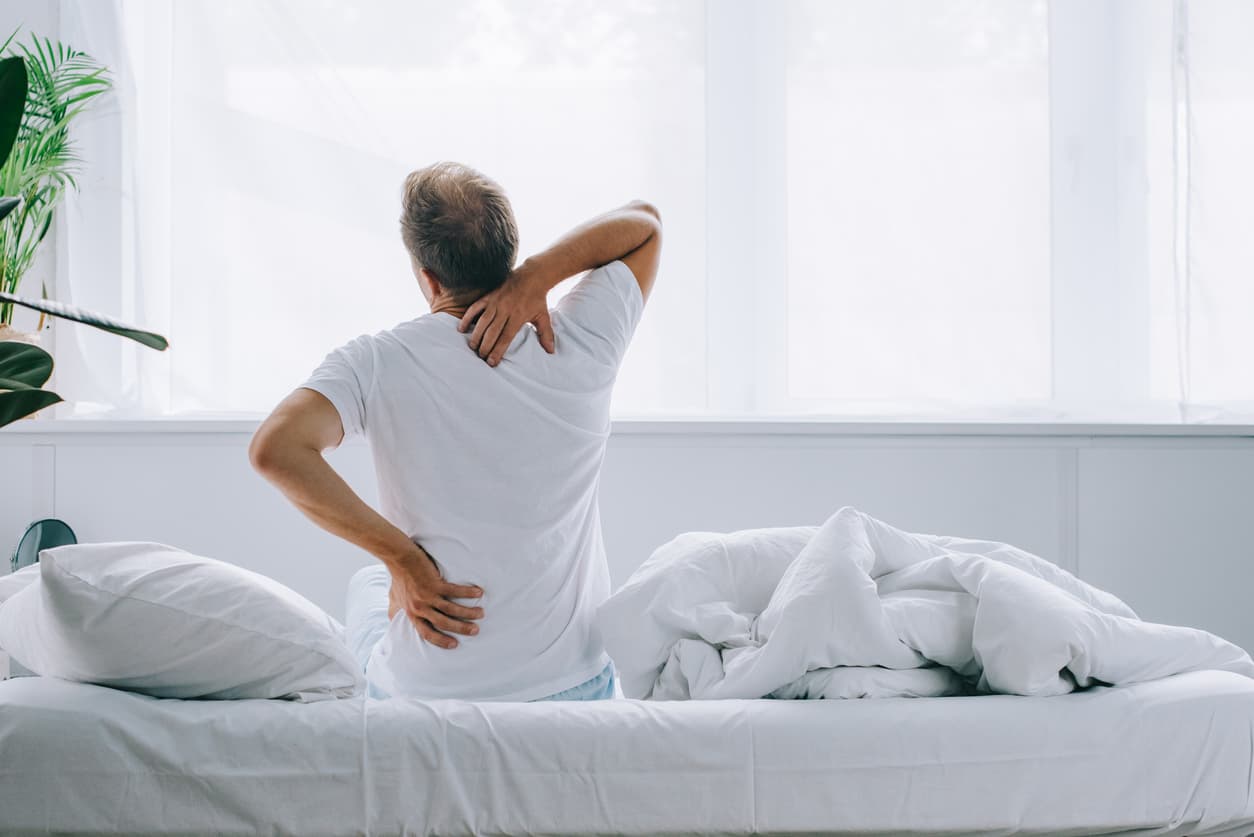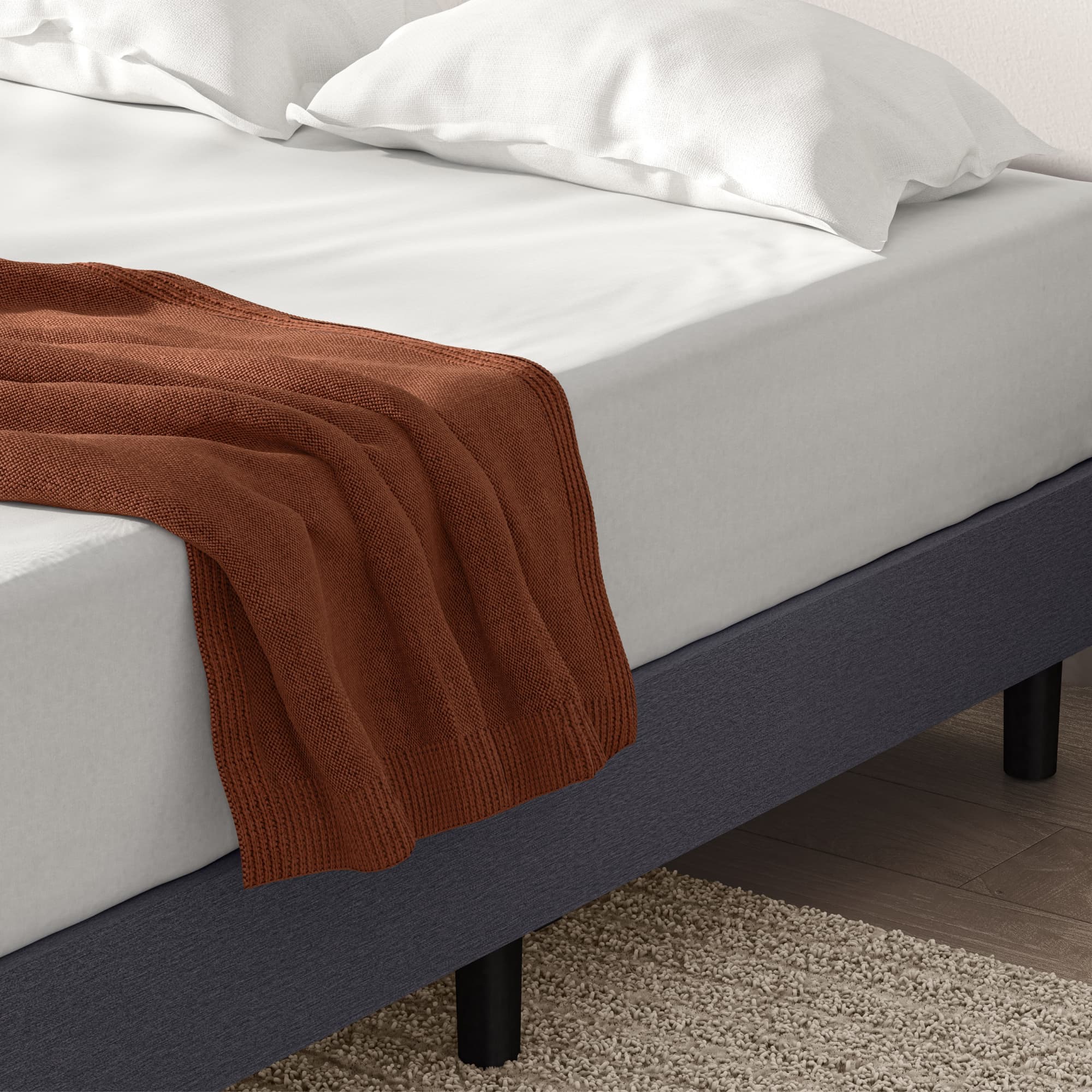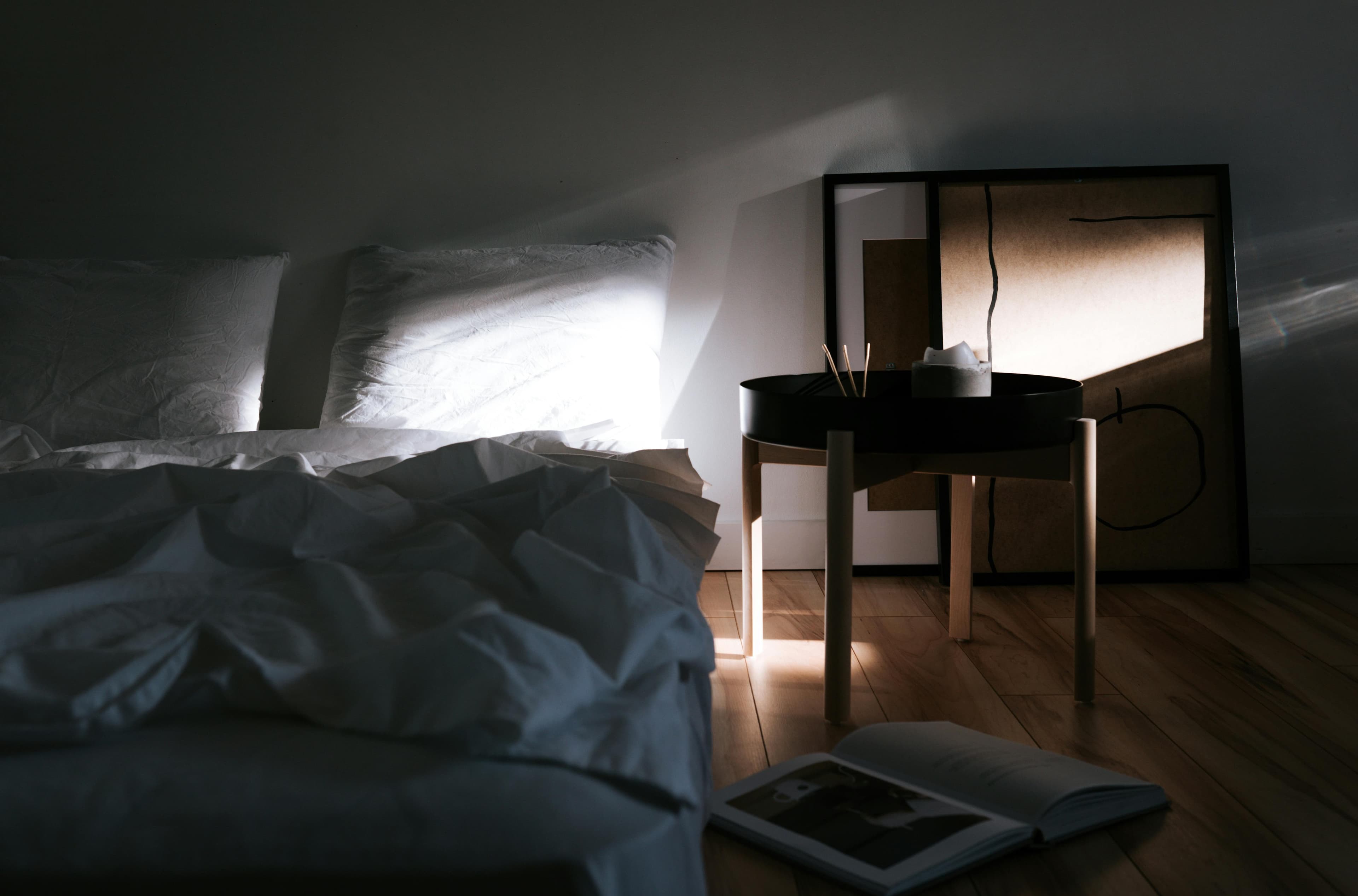Sleep anxiety is a relatively common condition, affecting a significant number of individuals worldwide. According to the Sleep Foundation , around 30% of adults in the United States experience symptoms of insomnia, with anxiety being one of the leading causes.
But rest easy, we’ve compiled a list of great ways to improve or overcome your sleep anxiety. From meditation to exercise and good sleep hygiene, there’s something for everyone.
What Is Sleep Anxiety?
Sleep anxiety is a type of anxiety characterized by a continuous, unmanageable fear of going to bed and falling asleep or staying asleep. Those who suffer from this form of anxiety might also worry constantly about whether they're getting enough sleep.
If you have sleep anxiety, you might lay in bed and think obsessively about falling asleep or feel panic when you look at your bedside clock. Some people with sleep anxiety also experience sleep disturbances such as nightmares and night terrors. Sleep anxiety can occur by itself, or it can occur alongside other anxiety disorders .
Common symptoms of sleep anxiety can include:
An overwhelming feeling of nervousness or worry at bedtime.Difficulty falling asleep or staying asleep.
Frequent waking during the night with no outside cause (such as noise).
Nightmares or vivid dreams.
Racing thoughts and worries that interfere with rest.
Problems concentrating the next day.
Hypnic jerking, or twitches affect your body as you try to fall asleep.
Muscle tension and headaches.
Stomach upset and other GI problems.
What Can Cause Anxiety at Night?
Like other anxiety disorders, sleep anxiety can be caused by many different factors, including:
Stress: If you lay down at night and worry about what happened at work that afternoon or how early you have to get up, then your mind will have a hard time quieting down so you can fall asleep.
Fear: When humans feel fear, our bodies respond. Our heart rate increases, our palms might get sweaty, and our "fight or flight" response is triggered. Your body physically "wakes up" when you're afraid, which, in turn, makes it hard to sleep.
Fleeting thoughts: Some yoga practitioners call the inability to stop the internal chatter as monkey mind . These kinds of thoughts aren't always negative, but they are constant. You may experience these rapid-fire thoughts when you're excited or worried.
Poorly developed sleep cycles: Sleep anxiety affects your overall sleep cycle. In an ideal world, you would go to bed and wake up at the same time every day. If you can't sleep because of anxiety, your body doesn't have a chance to establish a healthy sleep cycle. This can feed into further anxiety, so it's important to develop good sleep habits .
Long-term Effects of Sleep Anxiety
Sleep anxiety is more than just inconvenient. It can also impact your overall health . The saying that "rest is the best medicine" has some truth. Improving your sleep habits supports good health and can help prevent the most common effects of chronic sleep anxiety, which include:
Negative impacts on mood. Getting too little sleep can make anyone grumpy. When you never get enough sleep, your mood becomes more negative.
Poor concentration/lack of interest. You might find your mind wandering at important times. Poor concentration often leads to a lack of interest in work, school, or hobbies.
Problems at school or work. Mood and concentration problems can lead to both performance and behavior problems in school and work settings.
Reduced cognitive abilities. Getting too little sleep reduces your reaction time. Sleep deprivation can also contribute to accidents and injuries .
An increased risk of depression and other serious health disorders. Long-term sleep problems increase your risk of depression, panic disorders, obesity, cardiovascular disease, and other serious health problems.
11 Easy Ways to Overcome Anxiety at Night
Thankfully, there are many techniques to overcome sleep anxiety. Try out these different coping and anxiety-management strategies to find the ones that work for you. Most things that help you relax and put your mind in a positive state can help you overcome sleep anxiety.
1. Improve your sleep hygiene
Better sleep hygiene practices often make it easier to fall asleep and stay asleep. You can improve your sleep habits by:
Cutting out caffeine after lunch.
Avoiding alcohol before bedtime.
Turning off blue light sources like your smartphone and TV before bed.
Use your bedroom as a bedroom, not an office or hangout spot.
Keeping your bedroom cool, preferably between 60 and 67 degrees .
2. Meditate before bed
If excess worry or a monkey mind is keeping you up at night, try meditation. Meditating can help you control worry and get intrusive thoughts out of your head before you lay down.
3. Exercise during the day
Exercising is one of the best ways to beat stress. Exercise encourages the production of endorphins, a chemical associated with positive feelings. Endorphins help reduce stress and anxiety.
4. Give yourself time to prepare for sleep
Childhood sleep experts preach the importance of a bedtime routine for babies and young kids, but a nighttime routine is beneficial for adults too . Set aside time before bed to unwind by journaling or meditating, alongside routines such as washing your face and brushing your teeth.
5. Control your sleep environment
One of the easiest ways to fall asleep faster is by controlling the environment you sleep in. Ensure that your bed is clean and comfortable. Keep your bedroom cool and use a fan for air circulation. Turn off the TV, distracting music, and bright lights. If outside sounds seep into your room, try a noise machine. Create a quiet, restful environment to help your brain associate your bedroom with sleep.
6. Do more relaxing activities before bed
Along with creating bedtime rituals, prioritize relaxing activities before bed. These could include reading, crafting, or yoga. Anything that helps you wind down without a lot of physical activity could help you sleep. This helps create a transition ritual that signals to your brain that it's bedtime.
7. Limit your screen time at night
Digital screens produce blue light . This spectrum of light slows down melatonin production and interrupts your natural circadian sleep rhythms. You can fight sleep cycle problems by avoiding screens at least an hour before bedtime. Opt for music or an audiobook if you need something to listen to.
8. Write down your anxious thoughts
If worry keeps you awake at night, jot down your anxious thoughts on a piece of paper before you go to bed. This allows you to feel and let go of worries so that you can rest. Some people like to go a step further and crumple the paper up and symbolically throw their worries in the trash.
9. Avoid lying in bed awake
Anything you do repeatedly can become a habit, including laying in bed for a long time before falling asleep. If you can't sleep, get up and go to a different room. Do something relaxing and let your body calm down before you go back to bed. This trains your body to associate your bed with sleep , not staying awake.
10. Sleep with a weighted blanket
People who suffer from anxiety can benefit from the reassuring pressure of sleeping with a weighted blanket. Gentle weight soothes your body's nervous system and signals that you're safe. They're especially helpful if you also suffer from panic attacks. It's similar to how a strong hug can make you feel better when you're upset.
11. Choose the right bed
A comfortable bed is a key piece of the healthy sleep puzzle. If you can't relax at night, you won't be able to fall asleep. Our mission at Leesa is to make beds that provide whole-body support while helping minimize aches and pains. You can improve your overall sleep experience and reduce anxiety by choosing a well-made mattress and sturdy bed frame.
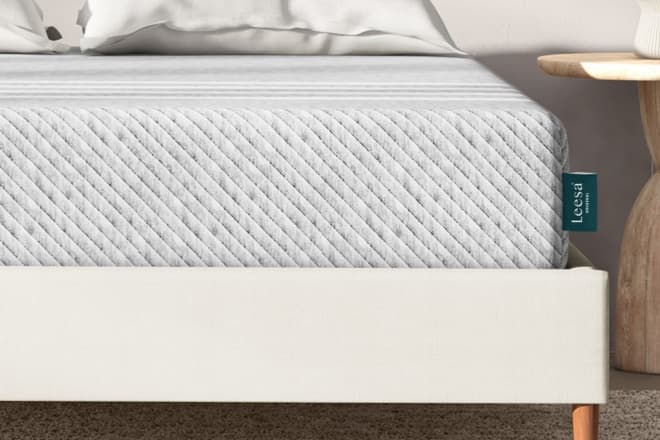
Stress Less and Sleep More with Leesa
Getting a good night's sleep starts with the right mattress, and it's no secret that the Leesa Original Hybrid is made with anxious sleepers in mind. With several layers of soft, breathable support, you can drift off into dreamland without thinking twice.
Find the right mattress to help you overcome sleep anxiety today.
FAQs
Is Sleep Anxiety the Same As Insomnia?
No. Insomnia is the inability to fall asleep and can be caused by many things. Sleep anxiety is a feeling of worry or dread about going to sleep, falling asleep, or staying asleep.
Can Sleep Anxiety Be Cured?
Like other anxiety disorders, sleep anxiety can be effectively treated and managed. However, anxiety itself cannot be completely cured. It's an important emotion that alerts us to immediate or potential danger.
Will Melatonin Cure My Anxiety at Night?
Doctors say that melatonin may calm your anxiety and help you sleep better at night, but it isn't a fix-all cure. The underlying causes of anxiety must be addressed for long-term relief. Talk to a doctor before taking melatonin as it's a hormone that can interact with other medications and conditions.
Is Anxiety at Night Common?
Yes. Anxiety is the
most common mental health problem
among adults in the U.S. Worry doesn't follow a schedule, so anxiety at night is as common as anxiety at other times of the day.
